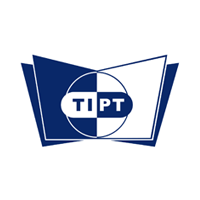
Because combination products are both pharmaceuticals and medical devices, such as inhalers or pre-filled syringes, they present the tricky task of combining two types of product, while making sure regulation is satisfactory. This means that in your career in pharmaceutical regulation, you may have to work in scenarios where two different approaches need to be balanced to evaluate one product.
Receiving training that provides a practical understanding of regulatory approval and communication processes will ensure that you are aware of how these apply to both drugs and medical devices. Read on for a guide to some of the ways drug-device combinations could affect your studies and future career.
Change Control May be a Factor When you Apply Your Documentation Training
You can put your education and academic orientation to good use when you enter the field of pharmaceutical regulation. Various analytical processes will demand specialized knowledge and practical skills, with proper documentation required. Change control is a major concern when working with medical devices, as a way to assess and verify design changes before implementation.
Change needs to be accurately documented and managed during the development process of a product and continuing throughout the entire lifecycle, once approved and on the market. To maintain improvement as a constant mindset, market surveillance is important once a product is commercialized. In pharmaceutical regulatory affairs, there needs to be procedures in place for review of design changes ahead of commercialization. You may encounter this during your career, if you work with combination products and are required to document these processes.
Drug vs. Device Development for Students with a Regulatory Affairs Diploma
The combination of a medical device and a pharmaceutical product presents some differences between the development of drugs versus devices. Because of that, you would need to be familiar with both in order to work with combination products in your career. Pharmacy is more step-based and prescriptive in the development stage. Medical devices, on the other hand, have more varied test requirements and must take into account risk management, design history, human factors, and usability.

To help handle products that are both devices and drugs, Health Canada provides guidance on how to regulate combination products in the pharmaceutical industry. These guidelines develop and change, so it’s important to stay updated and aware of new information, even after graduating from your program. The role of professionals in pharmaceutical regulation is to develop, compile, and file documentation to support pharmaceutical licensing and approval of drugs. You need to be able to handle documents accurately in a changing industry.
In your regulatory affairs courses, you will study procedures and practices for regulating the development of products. Take advantage of your co-op placement and laboratory facilities to expose yourself to real pharmaceutical submissions and understand how they are handled in the real world.
You can Make Use of the Network you Build in Regulatory Affairs Courses
At Toronto Institute of Pharmaceutical Technology, we offer mentorship, employ professors with real field experience, and provide access to a well-connected network in the pharmaceutical industry, allowing you to build connections that might open doors for you in your career. Once you’re in the professional world, taking advantage of that is a good idea not just for job options, but also for information sharing and collaboration skills.

For example, teams sometimes work together on combination products, with some people focusing on the device component while others develop the drug. It’s always useful to have a wider network of contacts and information to enrich your own knowledge base. It will also better prepare you to work with a variety of professionals in your career, who might think or operate differently than you. Cross-functional training for groups, identifying common goals and communication are all very important factors in smooth collaboration.
Are you interested in a regulatory affairs diploma program?
Contact Toronto Institute of Pharmaceutical Technology for more information!
